Want to be seen here?
Connect your company to the marketplace for free.
Compare different campaign proposals. Save time and money.
Time for a display campaign? Ocast has gathered thousands of solutions in one place so you can get started quickly. Fill in the form and start receiving offers for campaign proposals.
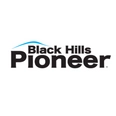
Established in 1876, the paper is the oldest business in West River South Dakota and the only locally owned and operated newspaper in the territory. The Pioneer serves Spearfish, Lead, Deadwood, St. O...

The Rapid City Journal (formerly the Black Hills Journal and the Rapid City Daily Journal) is the daily newspaper of Rapid City, South Dakota. As of 2021, it is the largest newspaper in South Dakota b...

The Chattanooga Times Free Press is a daily broadsheet newspaper published in Chattanooga, Tennessee, and is distributed in the metropolitan Chattanooga region of southeastern Tennessee and northweste...

It was Sept. 6, 1966, after a buildup of several months, a daily newspaper the Citizen Tribune was born. The paper was created to serve the eight-county Lakeway Region, providing news coverage on a wi...

The Cleveland Daily Banner is a three day weekly newspaper published in Cleveland, Tennessee. Founded in 1854, it is the longest-running newspaper in Bradley County, and one of the oldest newspapers i...
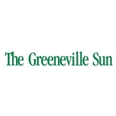
Established in 1879, The Greeneville Sun is a daily newspaper in Greeneville, Tennessee. The award-winning newspaper has a circulation of 14,390 for each of five weekday editions and 15,218 for the Sa...
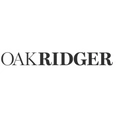
The Oak Ridger is an American daily newspaper published Mondays through Fridays in Oak Ridge, Tennessee. It is owned by Gannett. Its editor and publisher is Darrell Richardson.The Oak Ridger was estab...

American City Business Journals, Inc. (ACBJ) is an American newspaper publisher based in Charlotte, North Carolina. ACBJ publishes The Business Journals, which contains local business news for 44 mark...

Lubbock Avalanche-Journal is a newspaper based in Lubbock, Texas, United States. It is owned by Gannett.The Lubbock Avalanche was founded in 1900 by John James Dillard and Thad Tubbs.The Avalanche-Jou...

The Victoria Advocate is a daily newspaper independently published in Victoria, Texas. It is the second-oldest paper in Texas and the oldest west of the Colorado River, dating back to May 8, 1846, fo...

The Waco Tribune-Herald is an American daily newspaper serving Waco, Texas, and vicinity.The Tribune-Herald is best known for a series of stories in February and March 1993 about the Branch Davidian s...
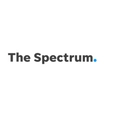
The Spectrum is a daily newspaper based in St. George, Utah.In February, 2018 Melissa Galbraith, a journalist and Utah native who had worked previously for the Arizona Republic, including as assistant...
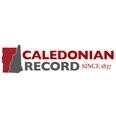
The Caledonian-Record is a daily newspaper published in St. Johnsbury, Vermont and primarily circulates throughout Caledonia County. It was established in 1837. It employed a total staff of 36 as of 2...
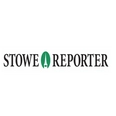
The Stowe Reporter was founded in 1958 by Dorre Hanna and Martha Ball. It was purchased by Trow Elliman, Alex Nimick, Russ Spring, and Mary and Bob Bourdon two years later, in 1960. Elliman bought out...

The Mountain Statesman is a thrice-weekly newspaper serving the Grafton, West Virginia area. Its 2016 circulation was 1,710.In 1946, at the age of just 20, Eldora Nuzum became editor of the Sentinel. ...

The State Journal is a weekly newspaper based in Charleston, West Virginia, and published by NCWV Media. It is the only newspaper with political and general news content distributed throughout the sta...

The Eau Claire Leader-Telegram (founded in 1881) is a newspaper published in Eau Claire, Wisconsin, by Adams Publishing Group. It is read throughout Eau Claire County and surrounding counties. As of 2...

The Capital Times (or Cap Times) is a digital-first newspaper published in Madison, Wisconsin by The Capital Times Company. The company also owns 50 percent of Capital Newspapers, which now does busin...

The Sheboygan Press is a daily newspaper based in Sheboygan, Wisconsin, United States. It is one of a number of newspapers in the state of Wisconsin owned by Gannett, including the Milwaukee Journal S...
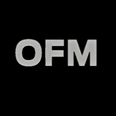
OFM (OUT FRONT Magazine) was founded in 1976 by Phil Price. Since then, no other queer media has served the LGBTQ community with such dedication.Price outlined his mission in the first issue of OFM: “...
Display advertising, often referred to as banner advertising, involves visual ads placed on various websites, in contrast to text-based search ads that appear in search results on platforms like Google.
While search ads are focused on direct response, display ads aim at building brand awareness through engaging visual content like images or animations. Display advertising also enables retargeting, where ads are redirected to users who have previously visited your website, helping to keep the brand fresh in mind.
With opportunities to measure campaign performance and customize design and target audience, display advertising offers an attractive strategy for brands looking to enhance their online presence and effectively engage their target audiences.
The most effective formats and sizes for display ads vary depending on the platform and target audience, but here are some popular options:
Leaderboard (728x90 px): Positioned at the top of the page, this ad size captures visitors' attention right away.
Medium Rectangle (300x250 px): This size is flexible and can be placed in sidebars or embedded within content.
Large Rectangle (336x280 px): A larger variant of the Medium Rectangle that offers more visible space.
Wide Skyscraper (160x600 px): Often used in sidebars, offering a long, vertical ad space.
Mobile Leaderboard (320x50 px): Optimized for mobile devices and often placed at the top or bottom of the screen.
Consider adhering to industry standards and adapting ad format and size to the specific platform and your target audience. However, the emphasis should be on having well-thought-out content that engages and is relevant to your target audience with clear "Call to Actions" (CTA) to encourage clicks and conversions.
Measuring the effectiveness of your display advertising campaigns is crucial for evaluating the results of your campaign and for fine-tuning future marketing strategies. A first step could be to look over the Click-Through Rate (CTR), which represents the number of clicks your ad receives per view, providing an indication of the ad's engagement level. It is also important to track the conversion rate, which shows how many clicks are converted into desired actions such as sales or leads. Cost Per Conversion is another key indicator that helps you understand the cost-effectiveness of your campaign.
It may also be good to look at the impression rate, that is, how many times the ad has actually reached out and been displayed for brand-building purposes.
One of the major advantages of this type of advertising is its ability for audience targeting, where ads can be directed based on demographics, behavior, and retargeting, enabling a more personalized advertising experience. Moreover, with the use of various analytical tools, it becomes easy to track and measure the campaign's effectiveness by observing data on clicks, conversions, and views, which provides valuable insights.
However, display advertising also has its downsides. Ad blocking is one of the major challenges, where users can choose to block display ads, which in turn reduces the reach and effectiveness of your campaign. Ad fatigue is another downside, where ads that are shown too often can become irritating for the users, leading to decreased engagement and negative brand associations. Despite the ability for audience targeting, audience dilution can be a challenge if precise targeting is not used, which potentially leads to wasted marketing expenses. Additionally, the cost of display advertising can become significant, especially if the campaign is not well optimized to achieve desired results.
The cost of display advertising can vary based on several factors such as website, ad format, and target audience. Besides that, there are different pricing structures one can base on to adjust the cost according to the goal at hand. Below we list different pricing options for display advertising.
CPM (Cost Per Mille or Cost Per Thousand Impressions):
The price for 1000 views of your ad.
Often used for campaigns aimed at increasing brand awareness.
CPC (Cost Per Click):
The price you pay for each click your ad receives.
Used when the goal is to drive traffic to a website or increase interaction.
CPA (Cost Per Acquisition or Cost Per Action):
The price for each specific action or execution, such as a purchase or lead generation, that arises via your ad.
Used when the goal is conversions rather than just views or clicks.
CPL (Cost Per Lead):
The price for each lead generated through your ad.
Used in B2B marketing or for products/services with longer sales cycles.
CPV (Cost Per View):
The price for each viewing of a video ad.
Often used for video-based advertising campaigns.
Each pricing structure suits different goals and campaign types, and choosing the right pricing structure can help maximize the ROI for your display campaign.
Connect your company to the marketplace for free.
No commitments.